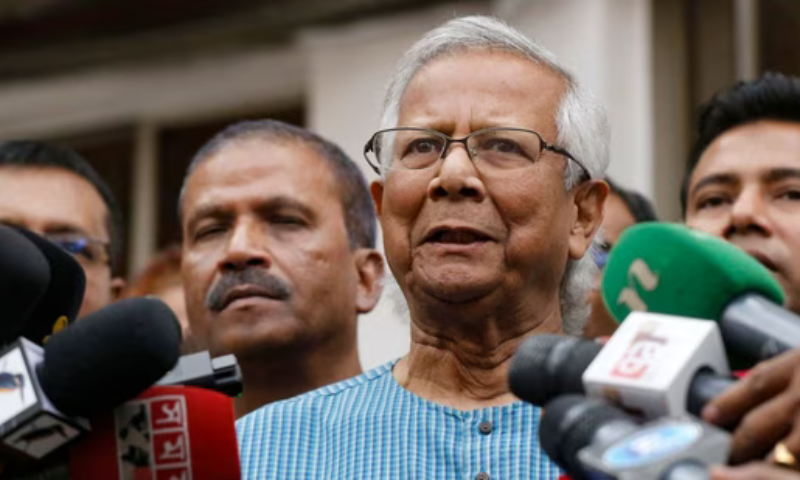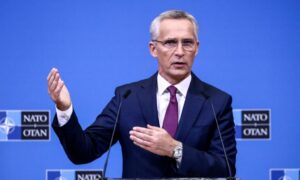DHAKA: Bangladesh’s Presidency announced early on Wednesday that Nobel-winning microfinance pioneer Muhammad Yunus has been tapped to lead an interim government after the ouster of Prime Minister Sheikh Hasina.
The decision “to form an interim government with Muhammad Yunus as its chief” was taken at a meeting of President Mohammed Shahabuddin, military leaders and the heads of the Students Against Discrimination group, the president’s press office said.
Earlier, Muhammad Yunus had expressed his willingness to lead an interim government.
Protest leaders, who have been demanding changes, have given Yunus 24 hours to accept their nomination as head of the interim government. They had previously set a deadline for Parliament’s dissolution by 3 pm, threatening further action if their ultimatum was not met.
Yunus, renowned for his microfinance work, made his statement on Tuesday, affirming his readiness to lead if it serves his country and its people, and calling for “free elections.”
Sheikh Hasina, who resigned on Monday after weeks of protests, fled the country via helicopter as the military changed its position. The military chief, General Waker-Uz-Zaman, announced the formation of an interim government to address the violence, which has claimed over 432 lives since the unrest began in early July.
On Tuesday, the president dissolved Bangladesh’s national parliament following the protesters’ ultimatum. The unrest has intensified, with mobs attacking government offices, parliament, and media outlets. There have also been reports of Hindu homes and temples being targeted, raising concerns among rights groups and international observers.
Following Hasina’s ouster, former Prime Minister Khaleda Zia has been released from house arrest and has become a significant figure in the current crisis. Political prisoners are being freed, and protests have led to extensive property damage and disruptions across Dhaka.
The UK and US have reacted to the situation, with the UK declining Hasina’s asylum request and the US canceling her visa. Bangladesh’s key regional allies, India and China, have called for calm and stability.























